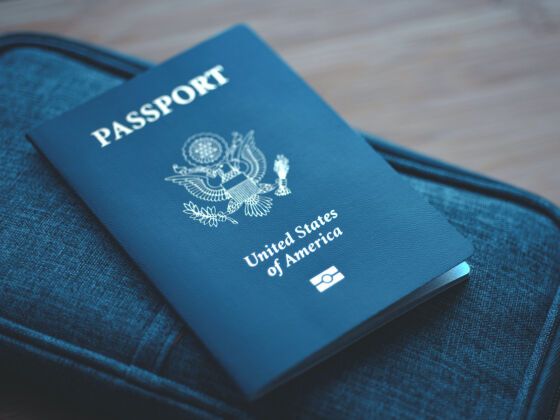I’VE ALWAYS THOUGHT of my passport as a right, not a privilege. Born in the US, never having renounced my citizenship (nor do I plan to), I use this multi-paged little blue book for my comings and goings. It’s been through the wash (not recommended, and definitely not on purpose), had extra pages stitched in (used to be free, now costs a whopping $80+), and generally bounced around with me when work or life takes me across borders. And it (or its future iterations) is mine to keep.


Turns out, I was thoroughly mistaken. The US government can revoke your US-issued passport for one of several reasons, including: owing more than $2,500 in back child support, for being under investigation, for having been found to be a drug trafficker, or considered a threat to national security. Those are just a few.
Now, under a proposed law that is soon to be heard before the House of Representatives, owing back taxes could halt your movement beyond the US borders as well. The “Moving Ahead for Progress in the 21st Century Act” or “MAP-21,” — a law which mainly has to do with highways — also includes a provision which would allow the US government to refuse to grant, refuse to renew, revoke, or restrict the passport of any US citizen which, according to the IRS, owes $50,000.
You need not have been found guilty of tax evasion or fraud, provided the IRS alleges that you owe $50,000 in taxes. That is enough for the US government to limit your movement in and (more likely) out of the country. The fact that your movement could be controlled for an act you have not yet been found guilty of is troubling.
Who it applies to
A quick analysis shows that a person who makes $40,000 in taxable federal income in the United States (who has about a 25% tax liability) will owe $10,000 per year (plus penalties), and over the course of five years of paying no taxes at all, would accrue a tax bill of more than $50,000. But if you’re a high-earner who has more than $261,000 in taxable federal income, you could owe $50,000 in back taxes in about a year.
But not paying your taxes for five years? Do people really do that? Turns out they do. Run a Google search for “back taxes” and get 4.4 million returns. And speaking of returns, IRS documents indicate that as of 2010, federal employees and retirees alone (some 279,000 people) owed $3.4 billion in back taxes as of September 2010.
So apparently, people not paying taxes is a huge problem in the United States. But is passport revocation and denial effective? Only some 30% of US citizens are passport holders, and this number has risen since laws were passed to require their use for visits to Canada and Mexico.
And is it fair? Under Article 13 of the Universal Declaration of Human Rights, under a section frequently referred to in terms of freedom of movement:
(2) Everyone has the right to leave any country, including his own, and to return to his country.
Effectiveness
But the United States has claimed the right to restrict movement for people who owe child-support, presumably either as an incentive to pay the money they owe (which does not directly benefit the government), or to punish people who owe money. Presumably, the authors of the bill and those who approve it also wish to make life uncomfortable for people who owe $50,000 or more in taxes. I have to ask which purpose limiting travel for people who owe $50,000 will serve, as a deterrent to owing that much money (or an incentive to pay up), as a punishment if you do, or an incentive to make tracks if you owe $49,999.
For the text of the proposed law, go here, and to follow its progress through Congress, go here. And for a little further reading on tax and passports, check out this Atlantic article talking about how tax liability is causing increasing numbers of US passport holders to turn them in. But it seems that’s an option mainly for those who are citizens of another country. Not having any passport at all would put a serious damper on your (legal) travel plans.